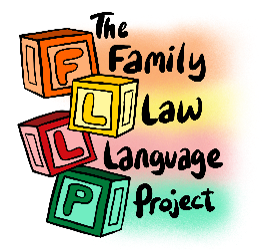How to defuse conflict with the language you use
Gemma Hope, Director, Collaborative Lawyer and Mediator at Family Law Partners.
Language is a powerful tool. Not only can it defuse conflict it can also prevent it. When families are separating emotions and tensions can be running high therefore being mindful of the words used, whether they are written down or spoken, is essential. Even for professionals, the language we use in formal letters can come across confrontational or insensitive. Here are some top tips which could help to reduce conflict:
Not starting a letter with ‘Dear Sirs’
Not only does this not reflect the diverse society we live in it also lends itself to depersonalising correspondence which makes it easier for conflict to arise.
Why not just address the letter to the person you are writing to? You are, hopefully, a lot less likely to be aggressive in correspondence when you are addressing someone personally and they are more likely to respond in kind.
If the correspondence does need to be more formal how about Dear ‘Mr/Ms [Surname]’ or using the name of the firm/organisation you are writing to. Failing that you could use ‘Dear Sir/Madam’ to account for the fact that not all organisations are run by men these days. You may even want to a gender neutral alternative if appropriate.
Using clients’ names in correspondence
Anything that depersonalises communications can make it easier to slip into more aggressive language. Families need to be at the heart of the matter and using the parties names rather than ‘my client’ or ‘your client’ can help ensure that happens.
Using ‘our children’ instead of ‘my children’
When discussing parenting plans or drafting statements within court proceedings anything that increases conflict could ultimately prevent issues being resolved. When one parent refers to the children as ‘my children’, this can be hurtful and make the other parent feel side-lined. Despite the relationship between parents breaking down, they are still both parents and both are important. It is much better for a parent to refer to the children as ‘our children’ to reflect that and increase the chances of resolving matters amicably.
Use ‘I’ statements instead of ‘You’ statements
Choosing the right words can be the difference between resolving issues or making them worse. Consider this: ‘You are always late home from work, you prioritise your work and don’t care about me’. How would that make you feel if someone said that to you? Annoyed? Defensive? Now consider this: ‘I feel really lonely when you don’t make it home in time to have dinner with me’. Does that make you feel the same way?
‘You’ statements make the receiver feel like they are being blamed and attacked. Instead, when an ‘I’ statement is used the person making the statement takes responsibility for the emotion, opening up an opportunity for a more constructive discussion as the receiver is not put on the defensive.
Choose less combative words
This is just a very short snapshot of how language can be used to help achieve more positive outcomes. There are of course lots more! Please use the contact section of this website to share and feedback your experiences of what words/phrases in family law you find help, or indeed hinder, the resolution of issues that separating families face.

